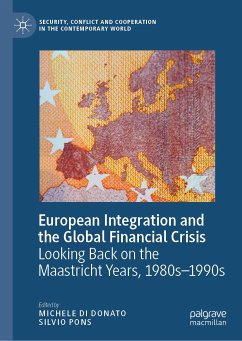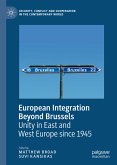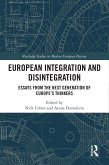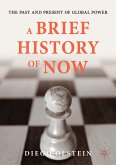Offering a fresh take on a crucial phase of European history, this book explores the years between the 1980s and 1990s when the European Union took shape. Whilst contributing to existing literature on the Maastricht Treaty and European integration at the end of the twentieth century, the book also brings those debates into the twenty-first century and makes connections with longer-term issues. The transformation of the European political climate in the wake of the global financial crisis in 2008, and the watershed Brexit vote in 2016, has made it all the more urgent to reconsider the way scholars and opinion-makers have looked at European integration in the past. Drawing from recently released archival documents, the authors analyse European cooperation as part of the broader international history in which it unfolded, taking into account the changes in the Cold War order and the advance of a new phase of globalisation. Comparing and contrasting the debates, objectives and achievementsof the 1980s and 1990s with the current political landscape of the European Union, this book proposes a novel interpretation of the choices that were made during the Maastricht years, and of their longer-term consequences.
Silvio Pons is Professor of Contemporary History at the Scuola Normale Superiore of Pisa in Italy. He is the president of the Gramsci Foundation in Rome and a member of the Editorial Board of the Journal of Cold War Studies.
Michele Di Donato is Assistant Professor of Contemporary History at the University of Pisa in Italy. His research focuses on the international history of the European Left, the Cold War and late 20th Century globalisation
Silvio Pons is Professor of Contemporary History at the Scuola Normale Superiore of Pisa in Italy. He is the president of the Gramsci Foundation in Rome and a member of the Editorial Board of the Journal of Cold War Studies.
Dieser Download kann aus rechtlichen Gründen nur mit Rechnungsadresse in A, B, BG, CY, CZ, D, DK, EW, E, FIN, F, GR, HR, H, IRL, I, LT, L, LR, M, NL, PL, P, R, S, SLO, SK ausgeliefert werden.
Es gelten unsere Allgemeinen Geschäftsbedingungen: www.buecher.de/agb
Impressum
www.buecher.de ist ein Internetauftritt der buecher.de internetstores GmbH
Geschäftsführung: Monica Sawhney | Roland Kölbl | Günter Hilger
Sitz der Gesellschaft: Batheyer Straße 115 - 117, 58099 Hagen
Postanschrift: Bürgermeister-Wegele-Str. 12, 86167 Augsburg
Amtsgericht Hagen HRB 13257
Steuernummer: 321/5800/1497
USt-IdNr: DE450055826
Bitte wählen Sie Ihr Anliegen aus.
Rechnungen
Retourenschein anfordern
Bestellstatus
Storno









